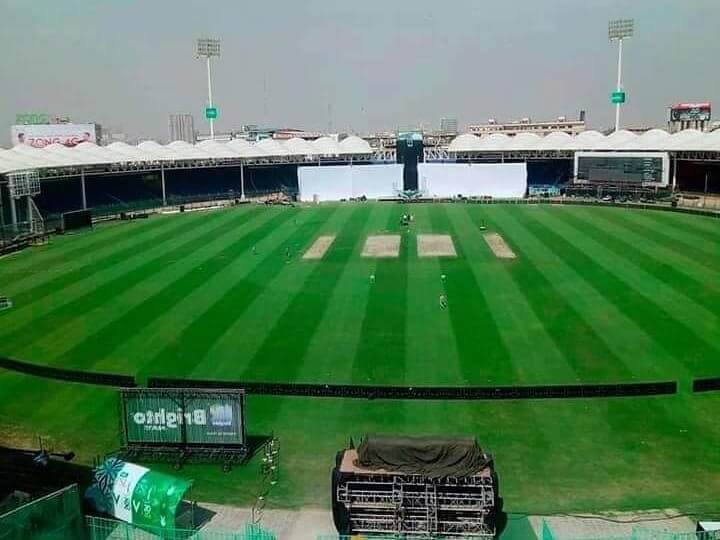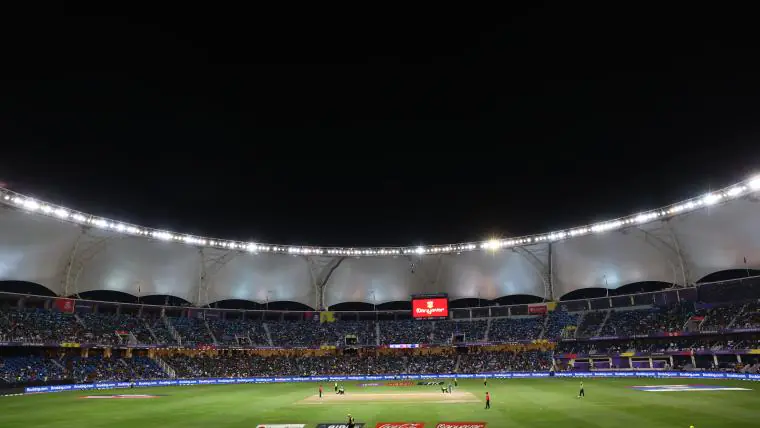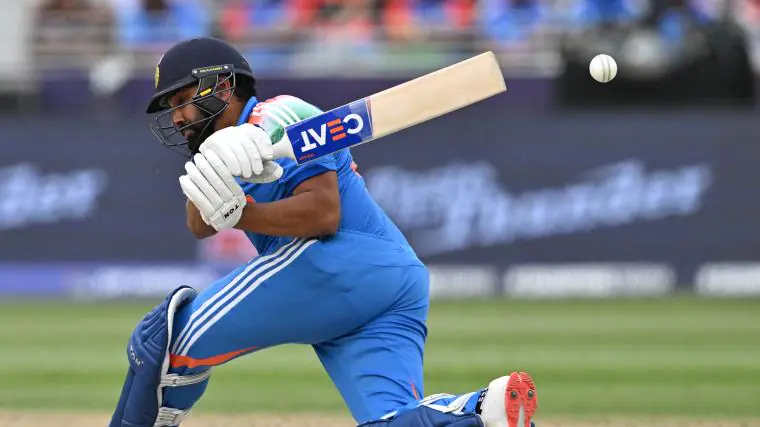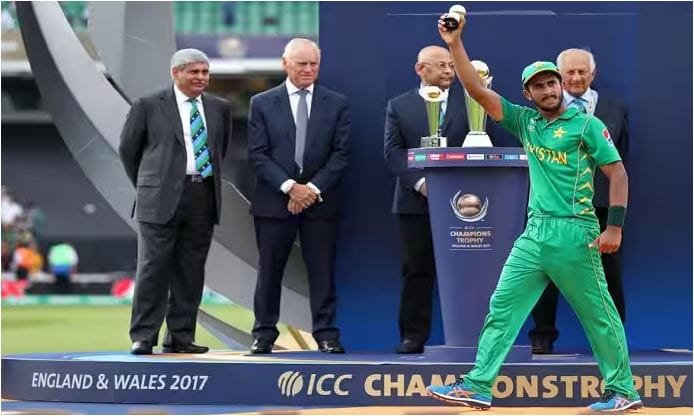
The longstanding cricketing rivalry between India and Pakistan has once again taken center stage, with India’s refusal to send its team to Pakistan for the ICC Champions Trophy in 2025 causing significant tension. In response, Pakistan Cricket Board (PCB) Chairman Mohsin Naqvi is actively engaging with the country’s top government officials to explore potential responses to India’s decision. With diplomatic, financial, and sporting implications on the line, the situation is rapidly escalating, setting the stage for a complex showdown in the world of cricket.
The Current Situation: India’s Official Refusal to Tour Pakistan
On November 10, 2024, the International Cricket Council (ICC) notified the PCB about India’s decision not to travel to Pakistan for the Champions Trophy scheduled for February and March 2025. This move, while not entirely unexpected, has sparked a flurry of diplomatic and administrative activity in Islamabad. Mohsin Naqvi, who also serves as Pakistan’s federal interior minister, has been in close discussions with senior government officials to decide on a potential response.
According to a PCB official, Naqvi is awaiting guidance from Prime Minister Shahbaz Sharif before making any formal statements. The Pakistani government’s next move could have far-reaching consequences, not only for cricket but also for broader bilateral relations between the two nations.
The Security Assurance from Pakistan
Pakistan has assured comprehensive security arrangements for all participating teams, including India. The PCB emphasized that recent tours by Australia, England, and other international teams have been conducted without any security incidents, demonstrating Pakistan’s capability to host high-profile events. Despite these assurances, the Board of Control for Cricket in India (BCCI) remains unconvinced, citing political tensions as the primary concern.
Former cricketing legends, including Inzamam ul Haq and Rashid Latif, have expressed disappointment over India’s stance. Inzamam emphasized that Pakistan would offer the best hospitality to the Indian team, arguing that politics should not overshadow the spirit of the game.
The Rejected Hybrid Model Proposal
The BCCI had proposed a hybrid model similar to the one used for the Asia Cup 2023, where India’s matches could be played in a neutral venue like Dubai. However, PCB Chairman Mohsin Naqvi firmly rejected this suggestion, insisting that all matches must be held on Pakistani soil as per the ICC’s original plan.
Naqvi’s refusal to entertain the hybrid model is driven by Pakistan’s determination to assert its rights as the designated host nation. Accepting a hybrid model would not only undermine Pakistan’s sovereignty but also set a precedent that could affect future tournaments hosted by the country.
Pakistan’s Potential Legal and Diplomatic Measures
With India’s refusal to tour, Pakistan is exploring various options, including potential legal action through the Court of Arbitration for Sport (CAS). By turning to international arbitration, the PCB could argue that India’s decision violates the ICC’s tournament agreements, potentially seeking compensation for financial losses.
In addition to legal recourse, there are discussions within Pakistan about escalating the issue to the International Olympic Committee (IOC) if India’s alleged mixing of politics with sports continues to affect international events. Pakistani officials have hinted at boycotting future matches against India in ICC events if the BCCI maintains its hardline stance.
Financial Implications for Both Boards
The financial ramifications of India’s potential boycott are significant. India vs Pakistan matches are among the most-watched sporting events globally, generating substantial revenue through broadcasting rights, sponsorship deals, and ticket sales. If India refuses to participate in the Champions Trophy, the PCB could face considerable financial losses. However, Pakistani officials argue that India would also lose out, especially if Pakistan decides to cease bilateral cricketing engagements moving forward.
A senior PCB official highlighted this concern, stating, “If India doesn’t attend, we may lose some revenue, but they will also lose if we don’t play them in ICC tournaments. We are prepared for that scenario.”
Strong Reactions from Pakistan’s Cricket Community
Prominent figures in Pakistan’s cricket community, including Javed Miandad, Rashid Latif, and Mohsin Khan, have expressed frustration over India’s refusal to tour. Miandad suggested that Pakistan should take a firm stand, even if it means boycotting matches with India altogether. He questioned the BCCI’s intentions, stating, “How will ICC tournaments thrive without Pakistan-India matches?”
Mohsin Khan, a former Test batsman, called for keeping politics out of sports, emphasizing that cricket should serve as a bridge between nations rather than a tool of division. He urged both countries to prioritize the spirit of the game over political considerations.
The Historical Context of India-Pakistan Cricket Relations
India and Pakistan have not engaged in a bilateral cricket series since 2007, with the last tour of the Indian team to Pakistan occurring during the 2008 Asia Cup. However, Pakistan has shown willingness to participate in ICC events held in India, such as the 2023 Cricket World Cup.
This history of one-sided participation has added fuel to the ongoing dispute. Pakistan feels that it has made compromises in the past by sending its team to India, only to be met with refusal when it’s time for reciprocation.
ICC’s Role: A Balancing Act
The ICC is now caught in the middle of this dispute. While the governing body awarded Pakistan the hosting rights for the Champions Trophy, it must also consider India’s concerns. Finding a solution that satisfies both parties is crucial to avoid a drawn-out conflict that could affect the tournament schedule and the credibility of international cricket.
With less than a year to go before the Champions Trophy, the ICC may be forced to intervene to broker a compromise. Whether that means exploring a hybrid model, relocating the tournament, or finding another solution remains to be seen.
What’s Next: Awaiting Government Directives
As Mohsin Naqvi continues his discussions with government officials, all eyes are on Prime Minister Shahbaz Sharif. The Pakistani government is expected to take a strong stance, potentially escalating the issue if India does not reverse its decision. This could include a temporary suspension of playing against India in ICC tournaments or even withdrawing from future events if necessary.
The situation remains fluid, and a lot will depend on how the Pakistani government decides to proceed in the coming weeks.
Conclusion
The standoff over the Champions Trophy 2025 reflects deeper political tensions between India and Pakistan, with cricket caught in the crossfire. As both sides dig in their heels, the stakes continue to rise. Whether this issue will be resolved through diplomacy, legal arbitration, or a political compromise remains uncertain.
Cricket fans around the world can only hope that the love of the game prevails over political disagreements. The next few months will be critical in determining whether the Champions Trophy 2025 will proceed as planned or become another casualty of geopolitics.
Check out the Champions Trophy Stats


